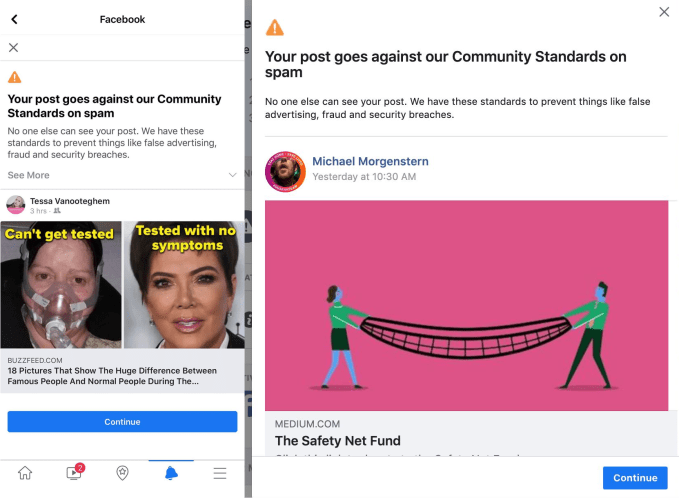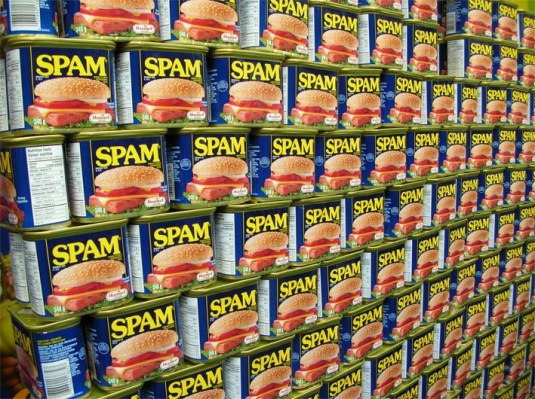Facebook suffered from a massive bug in its News Feed spam filter, causing URLs to legitimate websites including Medium, Buzzfeed, and USA Today to be blocked from being shared as posts or comments. The issue blocked shares of some but not all coronavirus-related content, while some unrelated links are allowed through and others are not. Facebook has been trying to fight back against misinformation related to the outbreak, but may have gotten overzealous or experienced a technical error.

A source tipped us off and provided numerous examples of blocked links. We reached out to Facebook for comment and a company spokesperson told us, “We’re looking into this right now and working as quickly as possible to share information. [I] can confirm at this point that we’re looking into the matter, can’t confirm what might be happening just yet.”
Facebook’s Guy Rosen later tweeted that “We’re on this – this is a bug in an anti-spam system, unrelated to any changes in our content moderator workforce. We’re in the process of fixing and bringing all these posts back. More soon.” Facebook sent home its content moderators this week and announced it would be relying more on its artificial intelligence systems, warning it could make “more mistakes.”
[Update 6:40pm PT: Rosen has now shared that, “We’ve restored all the posts that were incorrectly removed, which included posts on all topics – not just those related to COVID-19. This was an issue with an automated system that removes links to abusive websites, but incorrectly removed a lot of other posts too.” A Facebook spokesperson followed up that the company routinely uses automation to assist in enforcing its anti-spam policies, and this issue wasn’t related to it asking content moderators to work from home starting earlier this week amidst the coronavirus update.]
Upon sharing certain links, users were seeing a warning from Facebook stating: “Your post goes against our Community Standards on spam.” It went on to explain that, “No one else can see your post. We have these standards to prevent things like false advertising, fraud and security breaches.”
Earlier this month, Facebook banned ads for protective face masks in an effort to prevent price gouging during the outbreak. Facebook has also been sharing contagion prevention tips atop Instagram’s home screen, sending misinformation to fact-checkers for review, and providing data to researchers.
Facebook has grown into a fundamental communications utility, holding special importance during the COVID-19 crisis. News organizations are sharing life saving tips while non-profits are raising money for artists and businesses impacted by widespread quarantine orders. That means it’s more critical than ever that Facebook keep information flowing properly.

